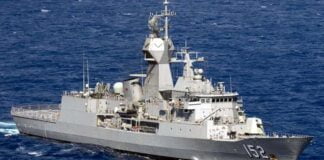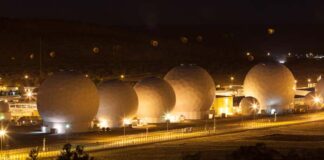The documentary All the Way, shown on ABC TV on April 12, was about the war in Vietnam but its central themes were just as relevant to today’s war in Afghanistan.
Where Vietnam had its My Lai massacre, Afghanistan has suffered the recent killings of 17 civilians by US soldier Robert Bale—and the hundreds more killed by drones or in night attacks on homes.
Australia participated in Vietnam as a contribution to its “insurance policy”—the alliance with the US. Today, Australia’s “mission” in Afghanistan is to help the US pretend that its occupation enjoys widespread international support.

In Vietnam, the military leadership lied about how well the conflict was going, knowing full well that the war was lost. Today the generals parrot lines about progress while preparing for a run for the exit.
The cracks in the official line are widening. On April 8, The Sunday Age revealed that the government aid agency, AusAID, had demanded that consultants rewrite a report on Oruzgan province, where Australian soldiers are based, because it clashed with the official, rosy line.
But while Julia Gillard has now announced troops may be home a year early than expected, in 2013 rather than 2014, she has stuck on message: “This is a war with a purpose … We have a strategy, a mission and a timeframe for achieving it,” she said in an address to the Australian Strategic Policy Institute.
Just a week before, Julia Gillard told a community cabinet public meeting in Parramatta that: “Defence force personnel who have been there over a long period of time can explain to you very vividly progress that is being made.”
But AusAID consultants report, according to The Sunday Age, stated that the Taliban, while weakened, were far from defeated and were capable of launching major attacks.
Last year, a leaked report from ISAF, the body which coordinates the West’s forces in Afghanistan, also confirmed that the Taliban, while battered, are not broken.
“While they are weary of war, they see little hope of negotiated peace. Despite numerous setbacks, surrender is far from their collective mindset,” it said.
Meanwhile, the Afghan government of Hamid Karzai has little traction, caught between its alliance with the West and massive domestic pressure to end the occupation.
Phil Sparrow, a longtime Australian aid worker in Kabul, wrote recently: “I think Afghans do want the troops out. I hear it all the time. Yes, they want security, but the international military are not providing that.
“As an example: Faryab, of the five northern provinces, has the highest number of conflict-related internally displaced people at present: some 25,000. The reason? Taliban moved into Faryab, and this caused some initial unrest, which quickly dissipated.
“Then the US military moved in: drone attacks, night raids, ground assaults, and a heavy, overt presence in the main city, Maimana … Are the Taliban innocent? No. But if the US had left them alone, they would have moved on, or settled down; in fact exactly that had started to happen, when Uncle Sam arrived in town.”
Withdrawal plans?
Gillard believes transferring control of the province to Afghan forces next year could allow withdrawal by 2013.
Professor Hugh White, writing in The Age, points to three reasons why this strategy is dubious.
“First, there are doubts about the quality of the Afghan army. Leaving aside the questions of loyalty raised by incidents of soldiers turning on their instructors, there are real questions about what these soldiers will be able to do. Second … the Afghan army and police will cost about $4.5 billion in 2014, and the Kabul government’s total revenue will be $1.6 billion. Clearly the army will only survive if outsiders are willing to fund it indefinitely. No one in today’s cash-strapped US and Europe is willing to do that. Third, and most profound, is the question of the army’s loyalties. Who will they serve when we have gone? The Karzai government is weak, corrupt and incompetent. It will be broke, too, once Western aid money dries up.”
It is this underlying failure of the West’s occupation that means that the war could still yet drag on, despite the promises of withdrawal. Gillard has said Australia will still offer “niche training” for Afghan forces beyond 2013.
The argument for ending the occupation and providing the Afghans with the resources to rebuild their shattered country is far from over.
David Glanz





